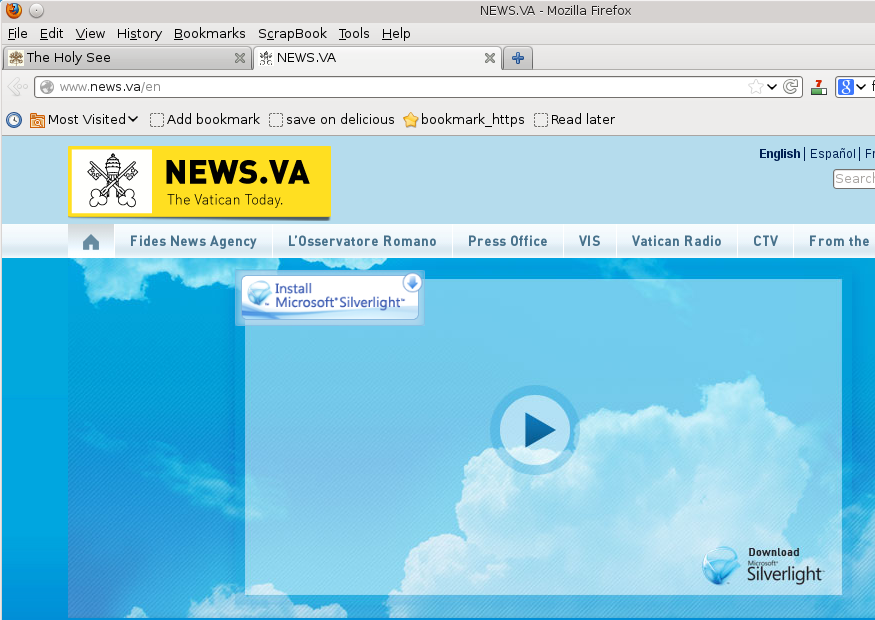All Posts
Things I heard at the "Core Values" conference
On November 4th, 2016, the Pontifical Lateran University held a conference on “Core Values – The Transmission of Values in Digital Age”. Radio Vaticana already published an official summary that explains how participants spent the day “posing hard questions to each other about the values that will best inform and sustain a coherent vision of integral human development in changing times” under the guide of Pope Francis' encyclical letter Laudato si'". This post, instead, is only a selection of the “quotable quotes” (from my handwritten notes, my apologies in advance for any error!) that I found most relevant, at least from the crucial point of view that
How many Christians will participate to DFD2014?
The title says it all. The Document Freedom Day “celebrates the importance of Open Standards for all electronic documents, whether public or private”. And these are the reasons why all Catholics, and all Christians in general, should promote this kind of event and take an active part in it:
Some questions and suggestions to all commoners
I’m just back from the 2013 Economics and Commons Conference in Berlin. A great event, in which I took lots of general notes synthesized in another post that I’ll publish tomorrow. This one, instead, contains just questions and suggestions from me that I already shared at the conference, or I’d like to share with everybody interested in Commons. A separate post contains my critique to certain arguments against copyright I heard at the same conference.
The departure of Benedict XVI? Not on this computer, sorry
In the modern world, more and more documents and services are made available in digital format. Even if it can be a source of huge progress for all humankind, this phenomenon often happens through technologies which become obsolete in a few years, are incompatible with each other or cannot be afforded by everybody. This fact creates serious obstacles to a really free communication among people, to the preservation of the cultural and spiritual heritage of humankind and to the diffusion of the Word of God.
The paragraph above is the introduction of the Eleutheros Manifesto that I and other Catholics wrote almost seven years ago. Today, February 28th, 2013, Pope Benedict’s last meeting in Vatican provides a perfect example of those obstacles we were, and remain, worried about. Because not everybody can follow it online, not from its source at least.
The real effect of the Internet on Catholicism (or any other religion)
The Online Loser Guide that I just wrote was born also as a reaction to a vision of the Internet (haven for perverted and terrorists, huge time-wasting toy or mere work tool) very limited and narrow-minded. A proof that the effects of digital technologies are much deeper is in how they are influencing the religious sphere, in ways still largely ignored by traditional, mainstream media and by many blogs. The following paragraphs contain some evidence of this trend in Catholicism, but I’d guess that the same general concept is valid for any other religion (more on this at the end).
